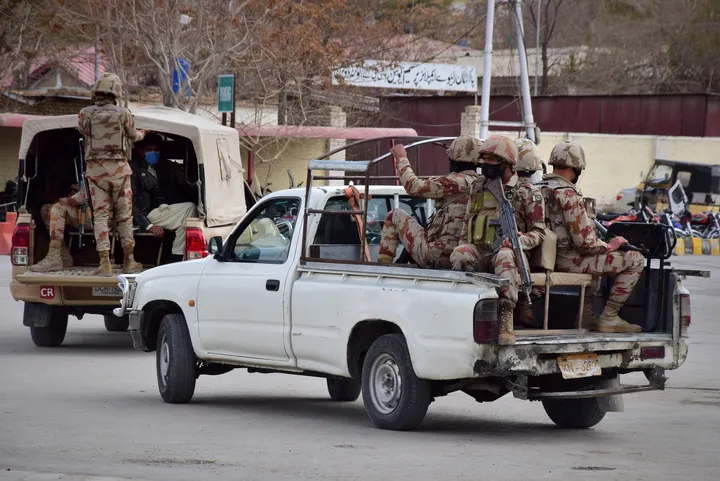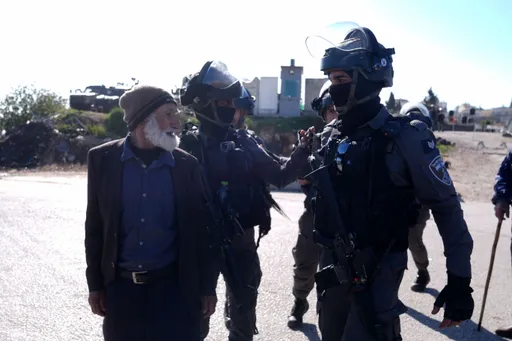TRT WORLD: Can you please tell us about yourself and the work that you do?
ANTON TRIPOLSKII: I am a Training and Technical Assistance Specialist at the Battered Women’s Justice Project (BWJP) in Minneapolis, USA. BWJP is one of the organisations funded by the US government to improve the criminal and civil justice systems’ response to intimate partner violence throughout the United States. Much of the work that I personally do involves assisting local professionals responsible for responding to intimate partner violence: police officers, domestic violence shelter advocates, prosecutors, court administrators, judges, and others, to identify ways they could better serve survivors to promote their safety and make offenders accountable for their actions.
As a ‘first world country’ and one that champions human rights and democratic principles, why is intimate partner violence so rampant in America? Would you say it is related to socio-economic causes?
There’s no evidence that intimate partner violence is driven primarily by poverty. The United States is a relatively wealthy country, and intimate partner violence is common in even the wealthiest neighbourhoods. American cultural factors play a significant role, but this violence is prevalent in the US for the same reason it is prevalent everywhere in the world: misogyny. Many men feel it is their right to control the decisions made by their partner—whom they don’t consider a ‘partner’. These men seek to control and coerce their partners: how they dress, whether or not they work, whether they can maintain a relationship with their old friends… and then, if she violates these rules that he creates for them without their input, sometimes he’ll be violent and even blame her for ‘making him’ enforce these rules. This general outline will be familiar to many women around the world. Men must recognise this behavioural pattern, recognise women as truly equal partners in relationships, and hold themselves, their family members, and friends accountable.
In the documentary, it was difficult to prove the case because the survivor did not incur any soft tissue damage. Today, how much violence is considered enough for a court case?
I am obliged to mention that in the US, criminal laws vary from state to state, as do the elements of specific crimes. It is therefore impossible to say with confidence without consulting a qualified attorney how much is ‘enough’. It is beyond question however that many prosecutors in the US could, in fact, be pressing far more charges—and more serious charges—for intimate partner violence than they are at present. A major problem remains: many prosecutors will decline to bring charges unless there is overwhelming testimonial and physical evidence in the file in front of them, and even then, many prosecutors still will not bring a case when they should, because they are afraid juries will not convict, or because they will put even these cases in the bucket of ‘he said, she said’, a common misogynist excuse to not pursue cases. Many police officers are not capturing the details and historical context of the intimate partner violence faced over many months or years by victim-survivors, and instead of developing a case are seeking to close it out as quickly as possible. This perpetuates an unvirtuous cycle: police don’t investigate cases fully and so prosecutors don’t charge intimate partner violence cases; when police do a better job, prosecutors still don’t charge these cases, the police are discouraged, and the cycle repeats.
In the film, we see common misconceptions about battered women and how the law fails to adequately address their situation. What problems do women who testify face?
Women’s credibility, and the credibility of victim-survivors of intimate partner violence generally, is significantly discounted in the court system. This is perhaps the single greatest obstacle to justice for victim-survivors today, and one that cannot be remedied through enacting new laws. Rather, a cultural shift must happen. Professionals in the criminal justice system, as well as the general public, don’t believe women’s own accounts of what they experienced and they do that often by coming to a misogynist conclusion that women often lie to gain some sort of advantage, financially or with respect to child custody, for example. This is a misogynist conclusion because these motivations are not applied in the same way to the person in the case, usually a man, accused of intimate partner violence.
Has there been any changes or development in domestic violence law since the documentary came out in 2014? What can lawmakers and activists do to improve the law and procedural trial of intimate partner violence?
Put generally, criminal justice professionals’ skills at recognising and responding to intimate partner violence are improving, if too slowly. For example, many jurisdictions in the US have instituted laws to specifically prosecute strangulation, and many professionals have received training. On the other hand, we know that far too few cases of intimate partner rape and stalking are being brought to justice. Women that don’t look a certain way, or don’t act like a victim is ‘supposed to’ are also routinely ignored by the justice system. We often pay a lot of attention to what’s happening politically at the national level, but, in the US, decisions on whether or not to bring cases of intimate partner violence to juries are being made every day not by national politicians, but by locally-elected prosecutors, sheriffs, and police chiefs who answer to locally-elected mayors. Lastly, we must educate and demand more of men, in the US, and around the world.























